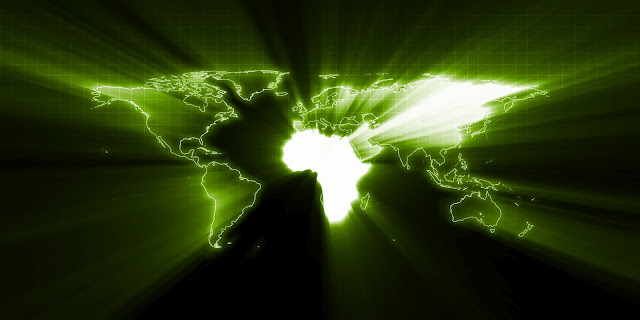"But seek first His kingdom and His righteousness and all these things will be added to you." - Matthew 6:33Coming through the tempest, I now find myself lying on the shore, exhausted and weak. For the longest time, I swam against the current, trying to reach a goal from which a greater force was intent on keeping me for one reason or another. In the midst of those interminable moments returning to shore, swimming through the rough, suffocating waters, I feared that my vain striving to reach some distant buoy would prove fatal, not in an extravagant or eloquent death that people would remember and retell again and again as a story of bravery and courage to the last breath, but simply sinking into nonexistence, swallowed up by the deep waters and forgotten.
I nearly lost heart that day at a beach in Torremolinos, just as I nearly lost heart that summer in the mountains of Africa. Doubt followed closely on the heels of loss of faith and death began to creep into my heart and spread through my limbs as I struggled in the direction of shore. Empty and sinking, I cried out in anguish for mercy and hope was reborn. The only hope that is capable of restoring my spirit, reinvigorating my passion, and re-centering my heart after it had once more strayed.
On that shore I lie, drained of all of me. Lying at the edge of the sea where I had given my last vain effort. Lying safe from the driving waves in which I was sinking into the deep waters of oblivion to the notice of no one. Spread out on the sand, my chest heaves as the waves continue to crash and surge over my weary body. Hope is rekindled as dependence is set right in my life, no longer the hand-puppet to suffocate me at the whim of selfish desires holding it captive; its icy fingers now slowly release from around my neck. For a time, dependence had become confused in me, given to that which was undeserving. My hope is not reliance on the girl I met two months ago in Sevilla though in the end it was her silence that served to painfully return me to dependence on the only One who will never fail me. My hope is not contingent upon advantageous circumstances, warm feelings, or the returned affection of a woman, nor should it be shaken -- if held firm by meditation on what has already been proven true in the world and in my own life -- by a lack of any one or all of these elements. My hope was and now remains He who rescued me after I had worked so hard to swim my own way only to find myself drowning in an unforgiving ocean. Even when I no longer held on to hope, He held on to me.
Now just ten days removed from my near death experience, with fresh perspective and a focus rebuilt on the foundation of the Creator of heaven and earth, He has enacted the process by which it seems He will give me one of His most precious gifts. And if there is one thing I have learned this summer, it is to not elevate gift above Giver. As I have sought the Lord these past few days, He has met me with wisdom, timely counsel, and ever-clearer direction. This morning I awoke and found myself soaking up a sermon preached by Jesus long ago. He proclaimed, "Seek first His kingdom and His righteousness." Seek the Giver, for then "all these things will be added to you."

